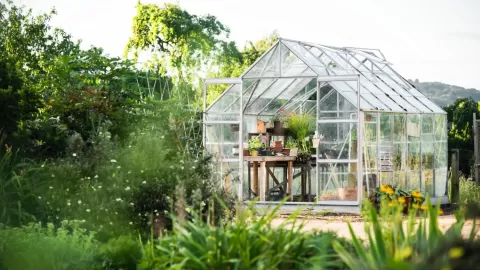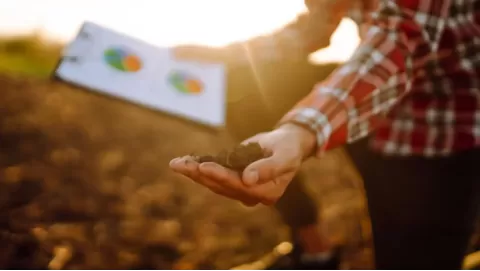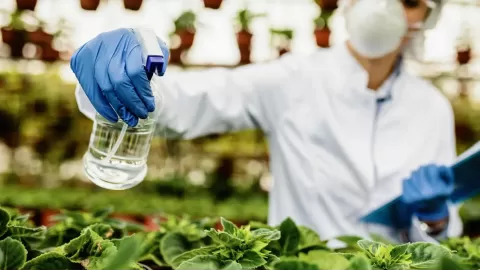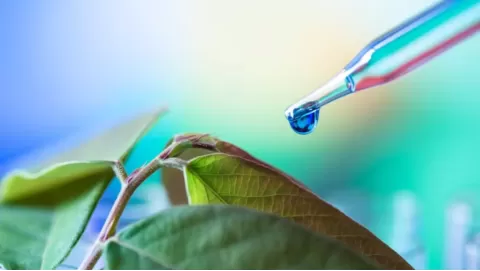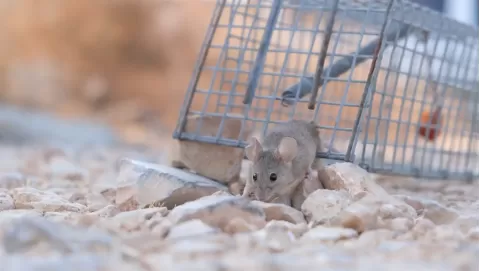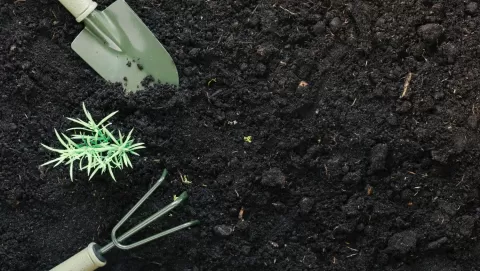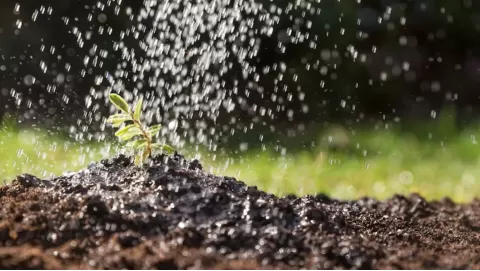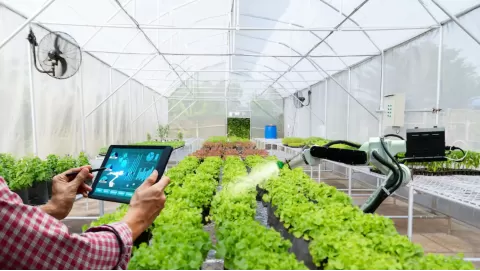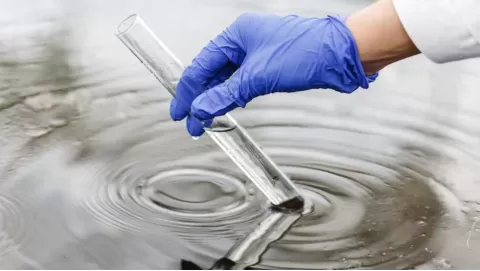
Building Soil Health: Innovations for Sustainable Growth
- What: Healthy soil contains billions of microorganisms that help decompose organic matter, fix nitrogen, and improve plant growth.
- Did you know? A teaspoon of healthy soil contains more microbes than there are people on Earth.
- Influencing Factors: Soil health is influenced by organic matter content, nutrient balance, and microbial activity.
- Improvement: Organic compost improves soil structure by improving aeration, drainage, and water retention.
- Eco-friendly: Regenerative agriculture practices can sequester carbon in the soil, mitigating climate change.
- Biodiversity: Healthy soil supports biodiversity, encouraging a variety of plants, animals, and microbes to thrive.
- Certified Organic: OMRI-listed products, like those from West Coast Horticulture, are certified for organic farming and ensure sustainable agricultural practices.
- Sustainable Fertilizers: Fertilizers made from organic, plant-based ingredients are safer for the environment and improve long-term soil health.
- Boosting Yields: The application of organic compost can boost crop yields, improve plant resilience, and improve soil fertility.
Healthy soil is sometimes overlooked as the foundation of successful agriculture. A healthy soil ecology greatly impacts the retention of water, the cycling of nutrients, and the resilience to external stresses, which in turn fosters strong plant growth. However, because erosion, nutrient depletion, and reduced microbial activity are problems for many soils, it is crucial to implement new methods of revitalization.

Companies, such as PhycoTerra, West Coast Horticulture, and Tank's Green Stuff, are leading the charge to restore soil health with innovative products and services. When farmers take the time to learn about and implement soil health strategies, improved crop health, greater yields, and a more secure agricultural future are all possible.
Understanding Soil Health: The Foundation of Productive Agriculture
Healthy soil is essential for agriculture. It's more than just dirt—it's a living, breathing ecosystem supporting plant growth, regulating water, and storing carbon. But what does "healthy soil" really mean?
- Structure: Healthy soil has a balanced mix of sand, silt, and clay, creating an ideal environment for roots to thrive.
- Nutrients: It's rich in essential nutrients like nitrogen, phosphorus, and potassium, ensuring plants get their dietary needs.
- Soil Organic Matter: Think of this as the soil's pantry—a reserve of decaying plant and animal material that feeds soil organisms and improves soil texture.
PhycoTerra: Supercharging Your Soil for Healthier Crops and Sustainable Agriculture
PhycoTerra is revolutionizing farmers' and growers' approaches to soil health. It offers a revolutionary approach to increasing crop yields, improving water retention, and maximizing nutrient availability, which centers on the microbiome, the community of soil microbes such as bacteria and fungi.
Discovering the Power of Microalgae
PhycoTerra uses microalgae, an excellent food source for soil microorganisms, to stimulate and support the microbiome. When this potent natural resource improves soil structure and function, beneficial microorganisms are roused to action and able to carry out their vital functions.
| Benefit | Explanation |
|---|---|
| Wake Up Dormant Microbes | 75% of soil microbes are dormant and inactive. PhycoTerra® provides a food source to activate them, improving nutrient availability, water holding capacity, and plant resilience. |
| Boost Crop Yield | Improves soil health to support higher-quality crops, improving both yield and return on investment (ROI) for farmers. |
| Sustainable Practices | Made from microalgae, a renewable and eco-friendly resource, PhycoTerra® supports regenerative agriculture, reducing soil erosion, boosting water retention, and improving soil fertility. |
Microbial Superpowers
- Decomposers: Break down organic matter into nutrients plants can absorb.
- Fungi: Form symbiotic relationships with roots, helping plants access water and nutrients.
- Nitrogen Fixers: Convert nitrogen from the air into forms plants can use.
Microbes are essential in agriculture, turning lifeless dirt into fertile ground. Without them, plants wouldn't grow, and our food systems would crumble.
Organic Compost: The Key to Replenishing Soil Nutrients
Organic compost is a powerhouse for replenishing soil nutrients and improving soil structure. By recycling organic waste, compost nourishes the soil and supports the growth of healthy crops.
- Improved Nutrient Content: Compost provides essential nutrients like nitrogen, phosphorus, and potassium, which are crucial for plant growth. It also contains secondary nutrients such as calcium and magnesium.
- Microbial Activity: Healthy compost teems with beneficial microbes that help break down organic matter, making nutrients more accessible to plants.
- Improved Soil Structure: Compost improves soil aeration, drainage, and water retention, creating an ideal environment for plant roots to thrive.
- Organic Matter: Compost's organic matter acts as a slow-release fertilizer, ensuring that nutrients are available to plants over time.
Tank's Green Stuff: Elevating Your Garden with Sustainable Solutions
Tank's Green Stuff offers a variety of high-quality goods that may help you improve the soil in your garden or landscaping project, leading to healthier plants. You can get everything from organic compost and soil mixtures to specialty fertilizers and beautiful wood chips.
Organic Compost for Richer Soil Health
The Organic Compost from Tank's Green Stuff is OMRI-listed and passes the highest standards defined by the US Composting Council's Seal of Testing Assurance. It's perfect for soil health and improved fertility. This premium compost is ideal for enhancing soil structure, increasing nutrient retention, and enriching any landscaping or gardening project. It helps improve crop yields, boost water retention, and improve plant resilience. Made from local materials, it's appropriate for various soil types.
Regenerative Agriculture: Building a Resilient Farming Future
Regenerative agriculture goes beyond sustainability by focusing on rebuilding and improving soil health through holistic farming practices. It seeks to restore balance and resilience to agricultural ecosystems, offering a promising solution for the future of farming.
- Soil Health Restoration: The primary goal of regenerative agriculture is to rebuild soil health by increasing organic matter and microbial diversity.
- Carbon Sequestration: Regenerative practices can capture and store carbon from the atmosphere in the soil particles, mitigating climate change.
- Biodiversity: These practices encourage a diverse ecosystem of plants, insects, and animals that work together to create a more resilient farm environment.
- Reduced Dependency on Chemicals: Regenerative agriculture focuses on soil health, reducing the need for chemical fertilizers and pesticides, and creating healthier food and ecosystems.
West Coast Horticulture: Tailored Fertilizer Solutions for Thriving Crops
With a variety of high-quality goods, West Coast Horticulture stands out for growers looking for organic, premium, customized fertilizer solutions. The holistic approach to crop nutrition, performance, and production is available at West Coast Horticulture, regardless of whether you're producing in soil, hydroponics, or another medium.
Organic Plant-Based Fertilizers for Healthier Crops
Fertilizers made from plants are available at West Coast Horticulture, and they are organic and sustainable, so they may help your crops thrive. Here are a few of their most notable products:
| Product | Key Benefits |
|---|---|
| Bloom 222 |
|
| Calcium |
|
| Grow 212 |
|
| Micronutrients |
|
The Bottom Line
The importance of healthy soil cannot be overstated in terms of sustainable agriculture and thriving ecosystems. Soil health restoration and enhancement is a growing industry, and leaders in this field include PhycoTerra, West Coast Horticulture, and Tank's Green Stuff.
If farmers and gardeners adopt these novel soil health solutions, agricultural systems can be made more robust, chemical dependence reduced, and food production secured for the future. Cover crops are an effective way to build soil organic matter, improve garden soil health, soil moisture and regulate soil pH, ultimately fostering a more resilient and productive growing environment.
The complementary actions of microbes, nutrient cycling, and organic farming methods promise increased agricultural yields and a safer world for generations to come. Undoubtedly, laying the groundwork for a more resilient and sustainable agricultural future begins with a dedication to soil health.
FAQs
Q1: Why is soil health important for agriculture?
A1: Soil health is essential for agriculture because it supports plant growth, helps regulate water, stores carbon, and improves nutrient availability. Healthy soil enhances crop yields, boosts plant resilience, and promotes sustainable farming practices by reducing the need for chemical inputs.
Q2: How can PhycoTerra improve soil health?
A2: PhycoTerra uses microalgae to activate dormant soil microbes, improving nutrient cycling, water retention, and plant resilience. PhycoTerra boosts soil fertility and supports higher crop yields by stimulating the microbiome, creating a more sustainable growing environment.
Q3: What is regenerative agriculture, and how does it restore soil health?
A3: Regenerative agriculture focuses on rebuilding soil health by increasing organic matter, enhancing microbial diversity, and reducing chemical inputs. This approach helps restore balance to agricultural ecosystems, capture carbon, and improve biodiversity, contributing to long-term soil health and sustainability.
Disclaimer: This material is for informational purposes only and should not be relied on for legal, medical, financial, or any other form of professional advice.
Sources:
European States Environmental Protection Agency - Composting At Home
Wollongbar Agricultural Institute - Soil Health: The Foundation of Sustainable Agriculture
Natural Resources Defense Council - Regenerative Agriculture


.jpg?1736515239677)







